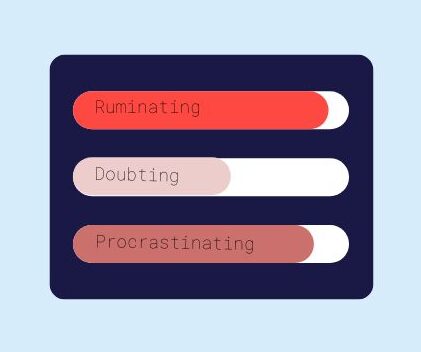In the past some academicians and clinicians discussed the difference among “health anxiety, somatic obsessions, or hypochondriasis” while others have looked at their commonalities (e.g. Taylor & Asmundson, 2004).
 Clinically speaking, all these terms simply refer to an ongoing fear or excessive anxiety about an illness and behavioral responses that attempt to reduce or avoid it. For instance, a person with this type of anxiety is constantly obsessed about having leukemia and as a result of this worry he requests multiple medical analysis, read books about leukemia, scan his body for any sign that may indicate he has in fact contracted leukemia or may ask constantly significant others to verify he is not dealing with this particular illness. Because of these characteristics, most clinicians will see hypochondriasis, somatic obsessions, or health anxiety as another form of Obsessive-Compulsive Disorder (OCD).
Clinically speaking, all these terms simply refer to an ongoing fear or excessive anxiety about an illness and behavioral responses that attempt to reduce or avoid it. For instance, a person with this type of anxiety is constantly obsessed about having leukemia and as a result of this worry he requests multiple medical analysis, read books about leukemia, scan his body for any sign that may indicate he has in fact contracted leukemia or may ask constantly significant others to verify he is not dealing with this particular illness. Because of these characteristics, most clinicians will see hypochondriasis, somatic obsessions, or health anxiety as another form of Obsessive-Compulsive Disorder (OCD).
In general these obsessions about a particular illness are triggered by news people hear, books they read, a story shared by a friend, etc. (external triggers) or by bodily sensations like lumps, dizziness, changes in their body temperature, etc. (internal triggers). The biggest challenge with these type of obsessions is that most people keep them to themselves, engage in compulsive behaviors that worsen the cycle of anxiety, and go years without asking for help. Recent studies have suggested that approximately 4-6% of the population struggles with health anxiety, and up to 10% of all visits to primary care settings maybe due to this condition.
The following behaviors are very common when people are struggling with this type of anxiety:
Avoidance of a triggering situation including hospitals, people with illnesses, televisions shows about death, illness, physicals places that would make symptoms worse, self-examinations, etc. For instance, a former client of mine couldn’t be close to his wife when she showed any signs of dizziness and used to called his wife’s sister to take care of her.
Body checking or monitoring of changes in their body like rushes, sensations of tightness, weight fluctuations, frequent inspections of sores and moles on the skin, etc. People may spend a large amount of time “controlling” changes in their body, from minutes to several hours a day.
Reassurance seeking consisting of behaviors such as repeated visits to doctors, website searches, checking with others that they don’t have a particular illness, requesting multiple medical tests, reviewing different medical journals, etc.
Use of safety signals including keeping the cell phone on hand just in case or carrying a medical book with them at all times to name a few.
The most effective treatment for dealing with these type of obsessions and problematic compulsions continues to be Exposure Response Prevention (ERP). The National Institute for Health and Clinical Excellence (2008) concluded that “ensuring access to adequate cognitive and/or behavioral therapies would currently appear to provide people with OCD the best chance of improvement through psychological therapies.” In some cases, the combination of ERP and anti-depressants is necessary because of the severity of the anxiety symptoms and impairment in a person’s life.
If this type of anxiety is something you are wondering about, feel free to answer the following questions to the best you can and then make an informed decision about your next steps.
1. Do you worry significantly about having a serious illness?
2. What do you do when you become concerned about your health?
3. Is this obsession keeping you away from activities, places, and people that matter to you?
If based on your answers you think you maybe dealing with health anxiety or hypochondriasis, as other clinicians refer to it, please know that you can receive an effective behavioral treatment to deal with this struggle instead of becoming a prisoner of it.
Patricia E. Zurita Ona, Psy.D. is a psychologist at the East Bay Behavior Therapy Center. Dr. Zurita Ona can be contacted at ebbehaviortherapycenter@gmail.com.
____________________________________________________________________________
References:
Abramowitz, J. & Braddock, Autumm. (2008). Psychological Treatment of Health Anxiety and Hypochondriasis: a biopsychosocial approach. Cambridge, Ma: Hogrefe & Huber Publishers.
Furer, P., Walker, J., & Stein, M. (2010). Treating Health Anxiety and Fear of Death. New York, NY: Springer.
Photo credit: Dreamstime.





